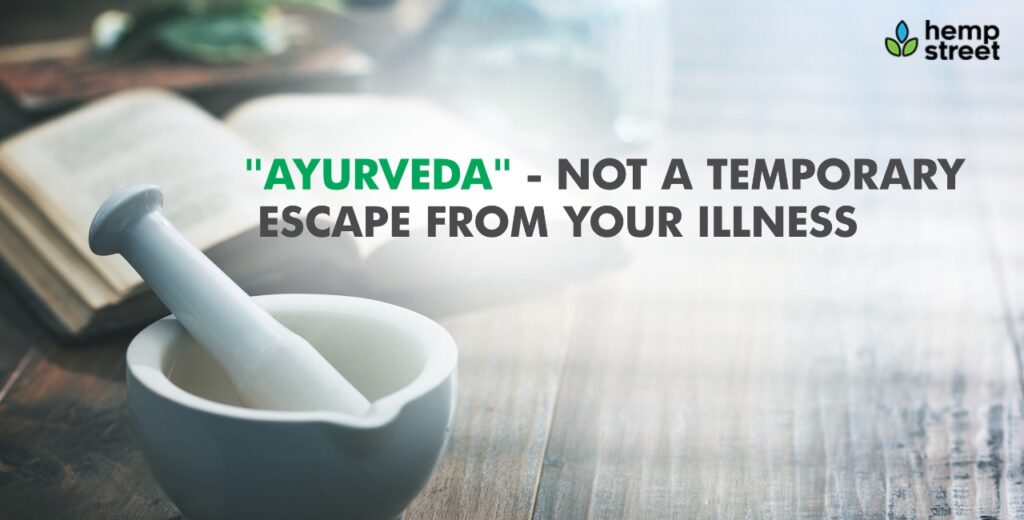India’s age-old indigenous medicament, Ayurveda, is much more than just an alternative to turn to when Western medicine does not work. Traditional native medicine of India originated 5000 years ago, Ayurvedic treatments helped heal and cure early people, who had but no other means to get themselves treated. More than just medicines, Ayurveda is a way of diagnosis that involves a whole range of practices and natural therapies.
“Ayurveda” is a Sanskrit origin word, meaning Ayur(life) and Veda(knowledge). Thus, Ayurveda is knowledge of life, a comprehensive system of Indian health care that is a combination of medications, therapies, diets, lifestyle modifications.
Unlike science-based allopathic medicine, Ayurveda is a system of medicine that is based on the idea that unless the mind, body, and spirit of each human being are not in sync, the human body would be vulnerable to various diseases.
The quality or the state of human beings in which the mind, the body, and the spirit are concomitant to each other, is termed as Prakriti. The roots of Ayurveda are traced to the Ayurvedic literature, found in the ancient, historical Indian texts, the Vedas. Prakruti(nature) of a human being is determined by their respective bodily energies, also called doshas, that are categorized into Vata, pitta, and Kapha. Ayurveda identifies that any excess or lack of these doshas is the primary cause behind human beings suffering from diseases.
Misconceptions about Ayurveda
Before we delve into the details, let us look at a few major fallacies about Ayurveda:
• Ayurvedic medicine is just a less preferred alternative that is based on faiths and beliefs and not science
• Ayurvedic medicines are not effective immediately and thus, it takes a longer time to heal. Even the healing effect does not stay for long
• Ayurvedic medicines are not related in any way to allopathic medicines
• Ayurvedic medicines are unreliable as they do not undergo a trial
• Ayurvedic medicine is all about herbal medicines
In order to clarify these misconceptions, we’ll look at how Ayurveda is much more than just an alternate to scientific-driven modern medicine.
Ayurveda and its legitimacy
Efficacy of Ayurvedic medicines has been established through the proper channels of testing and examination, i.e., clinical trials and scientific research methods.
• Ayurvedic extracts have been proven to be equally efficient as allopathic drugs for knee osteoarthritis, on the basis of results of a clinical trial in 2011. Since these extracts are obtained from plants, they’re much more natural and have limited side-effects
• There were similar results for rheumatoid arthritis when an NCCIH funded pilot study in 2011 concluded that the differences of the effect of a conventional drug and Ayurvedic treatment, on 43 people who suffered from the disease, were negligible
The over-arching study conducted in the 1970s by the World Health Organization (WHO) in collaboration with the Ayurvedic Trust, an Indian public health care organization, ensures that Ayurvedic medicines are safe and can be trusted.
Cannabis in Ayurveda
Considered as one of the five sacred plants mentioned in the Vedas, cannabis plays a significant role as an inclusive part of Ayurveda. Widely appreciated in Ayurvedic literature for its healing properties, cannabis is also referred to as ‘joy-giver.’
Ayurveda believes that when the herb undergoes the process of purification, cultivation, and refinement, it becomes competent enough for a wide range of treatments from that of aiding digestion and heightening appetite to treating chronic pain amongst cancer patients.
At the advent of the 21st century, a common myth regarding the psychoactive properties of cannabis has taken the ground. But gradually and slowly, this stigma around the use of cannabis is eradicated as medicinal cannabis and its healing effects are unearthed. The journey of cannabis from just a natural herb to a medicinal drug has been full of obstacles, however, it has brought relief to millions of people.
Takeaway
As Ayurvedic treatments have a wide range, it is important to consult an Ayurvedic practitioner and undergo treatments as advised. Since almost 90 percent of Indians turn to Ayurvedic treatments, it is high time that Ayurveda is on the path to global recognition, not just as an alternative, temporary relief provider, but as a mainstream system of healthcare, that goes beyond the disease affected part of the body and provides wholesome methods, for the well-being of the whole body.
just as an alternative, temporary relief provider, but as a mainstream system of healthcare, that goes beyond the disease affected part of the body and provides wholesome methods, for the well-being of the whole body.
References
https://www.nccih.nih.gov/health/ayurvedic-medicine-in-depth
https://www.hopkinsmedicine.org/health/wellness-and-prevention/ayurveda




